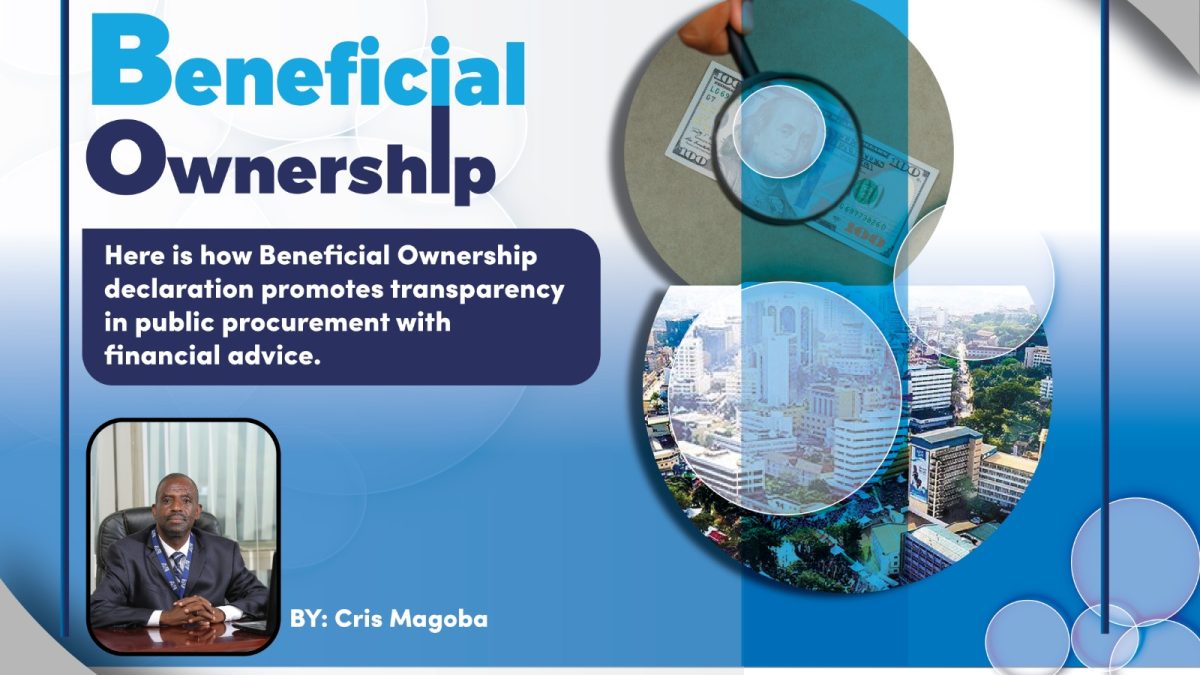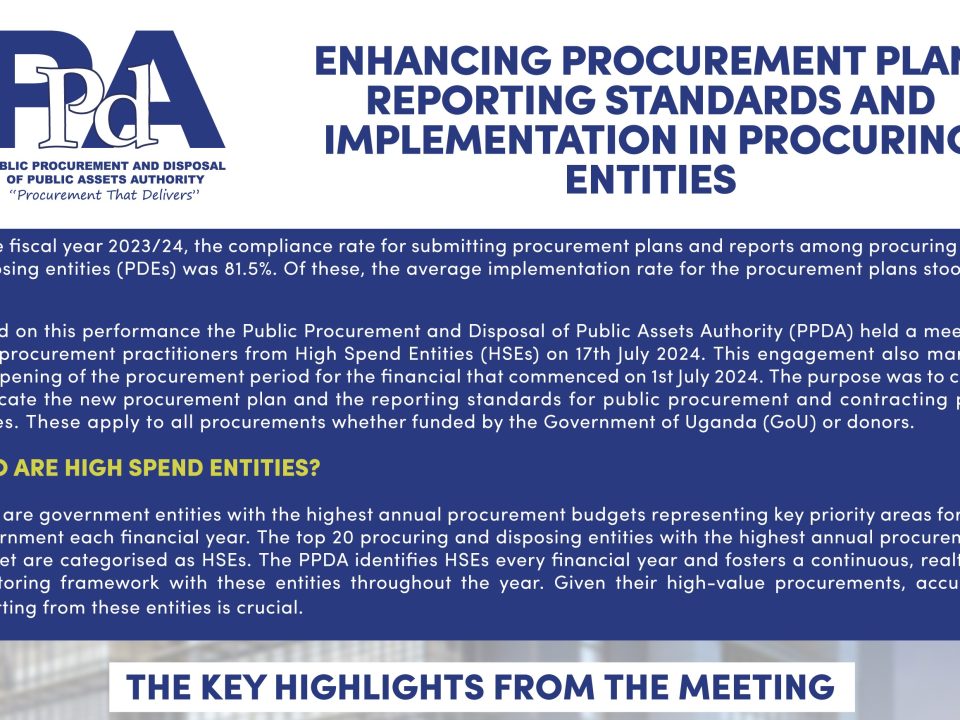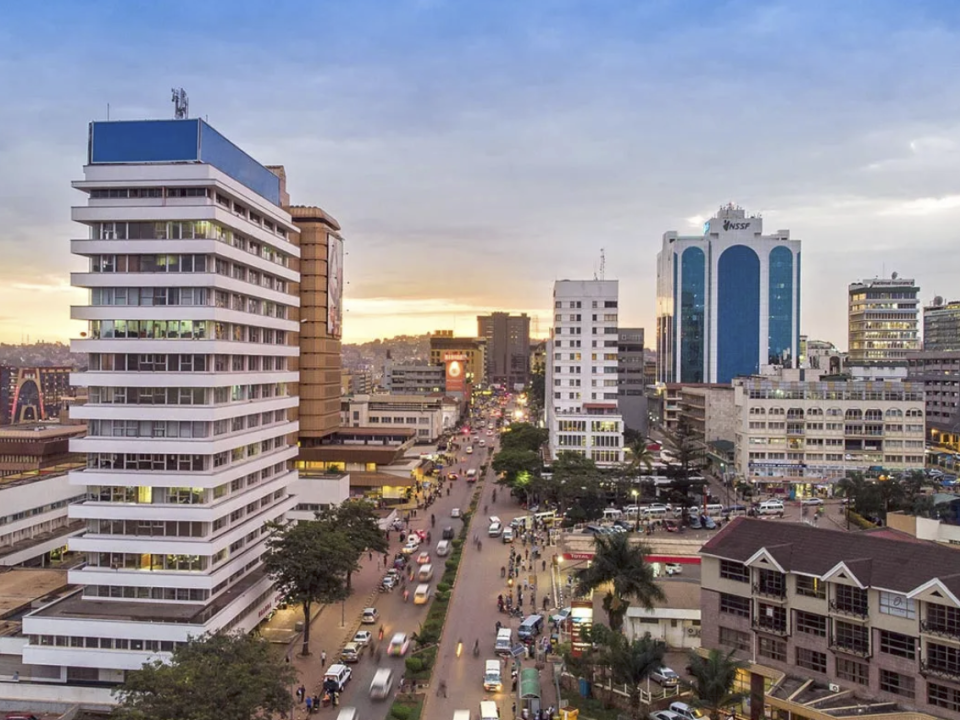Here is how Beneficial Ownership declaration promotes transparency in public procurement

Here is why accounting officers are critical in curbing private sector corruption.
November 13, 2023
FINANCE MINISTER ISSUES NEW PPDA REGULATIONS 2023
January 24, 2024Here is how Beneficial Ownership declaration promotes transparency in public procurement
By Cris Magoba
In December 2021, in Sharm El-Sheikh, in Egypt, during the 9th session of the Conference of the States Parties to the United Nations Convention against Corruption, the states adopted Resolution 9/7 about access to beneficial ownership information.
The gist of the Resolution is “promoting the collection, maintenance, access, use and accuracy of beneficial ownership (BO) information to enhance the use of this information to facilitate the recovery and return of the proceeds of crime”.
Following this resolution, and even earlier in some countries, BO is increasingly a critical thematic area in public policy implementation across the globe. It is basically about a person who enjoys the benefits of ownership of a company or firm, even when such company or firm’s name may be registered in another name. BO is distinguished from legal ownership, though in some cases, the legal and beneficial owners are one and the same. A beneficial owner is the living, breathing human being who ultimately profits from the company, or controls the company’s activities.
In Uganda, the Companies (Amendment) Act 2022 and the Partnership (Amendment) Act 2022 define a beneficial owner as “a natural person who has final ownership or control of a company/partnership or a natural person on whose behalf a transaction is conducted in a company/partnership and includes a natural person who exercises ultimate control over a company/partnership.”
In public procurement, BO is very important. It is about “lifting the veil” to reveal the actual bidder or contractor, in the public procurement processes. This is expected to encourage and increase transparency through the disclosure of the persons who ultimately own, control, exercise substantial interest in, or receive substantial economic benefit from a given company.
What this means is that if a company is legally owned by a second company (according to its corporate registration information), the beneficial owners are actually the natural persons behind that second company or ultimate holding company in the chain of ownership.
The Uganda Registration Services Bureau (URSB) has invoked provisions of the Companies (Amendment) Act 2022 and the Partnership (Amendment) Act 2022, to require all companies and partnerships to submit their BO information. Thus, after a notice issued on 11 January 2023, the BO register maintained by URSB discloses the personal information of the beneficial owners of a company or partnership, the nature of the ownership, and the control they have in the company or partnership.
While BO continues to take centre stage internationally, for some of the aforementioned reasons, it is one of the most invaluable reforms in the context of ensuring transparency, integrity, and accountability in public procurement and other government transactions.
In a recent address to public procurement gurus in the East African Community, the Executive Director of the Public Procumbent and Disposal of Public Assets Authority (PPDA), Benson Turamye, underscored the importance of BO in government transactions.
He noted that “it is a global reform in public procurement. It’s about the person who enjoys the benefits of a company. The person who benefits is not necessarily the person in whose name the company is registered”.
He added, “You may own a company, or you’re a director of the company. But the company may be used by someone else. The proceeds go to someone else and not the legal owner”.
BO is important in curbing corruption and money laundering. If the BO is not known, then the government cannot trace the proceeds of the company. Tracing proceeds is important, not just for fighting corruption, but also for tax obligations. Without BO, the opaqueness enables some individuals to engage in a wide range of illicit acts, including corruption, tax evasion, terrorism financing, and money laundering.
BO is also important for fighting conflict of interest in public procurement. The decision maker, say, a member of the contracts committee, should not be a bidder.
Furthermore, with BO, the government entities are able to detect price inflation through multiple companies under one umbrella who falsely create an appearance of competition.
The PPDA has issued a circular and a template to all government entities on BO. It is a compliance requirement. The BO information should be submitted at the time of bidding. If a bidder has not declared BO, the entity is supposed to disqualify such a bidder immediately from the procurement process. The PPDA also requires all government entities to submit BO particulars (names and addresses) of all awarded contracts.
Failure to declare BO is a ground to suspend a provider from all public procurement proceedings in Uganda in line with Section 94 of the PPDA Act. This is therefore a clarion call to all entities and to bidders to adhere to this requirement for advancement of transparency, accountability and fairness in government transactions.
-Ends-




